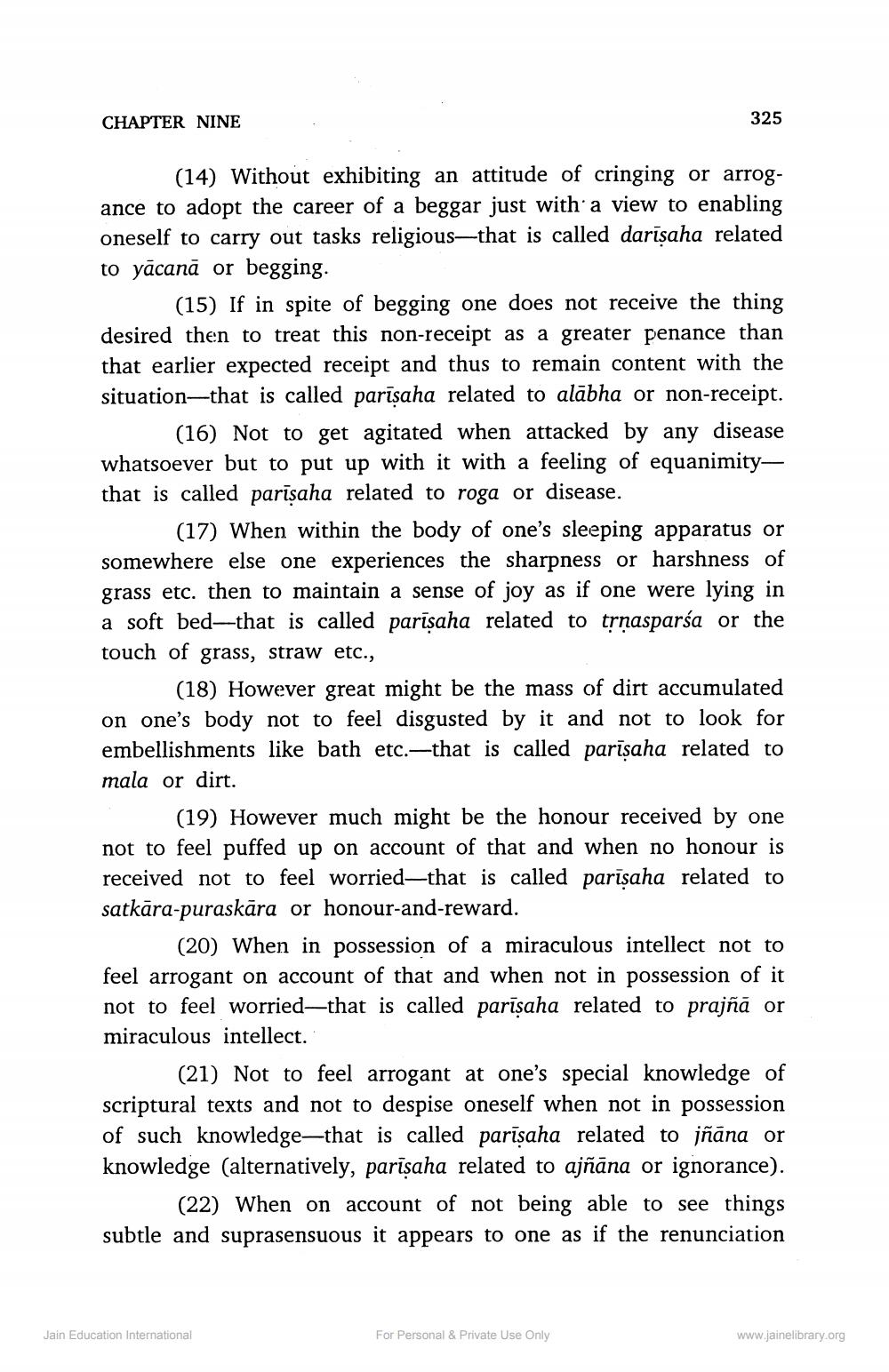________________
CHAPTER NINE
325
(14) Without exhibiting an attitude of cringing or arrogance to adopt the career of a beggar just with a view to enabling oneself to carry out tasks religious—that is called darīşaha related to yācanā or begging.
(15) If in spite of begging one does not receive the thing desired then to treat this non-receipt as a greater penance than that earlier expected receipt and thus to remain content with the situation—that is called parīşaha related to alābha or non-receipt.
(16) Not to get agitated when attacked by any disease whatsoever but to put up with it with a feeling of equanimitythat is called parīşaha related to roga or disease.
(17) When within the body of one's sleeping apparatus or somewhere else one experiences the sharpness or harshness of grass etc. then to maintain a sense of joy as if one were lying in a soft bed—that is called parīşaha related to tặņasparśa or the touch of grass, straw etc.,
(18) However great might be the mass of dirt accumulated on one's body not to feel disgusted by it and not to look for embellishments like bath etc.—that is called parīşaha related to mala or dirt.
(19) However much might be the honour received by one not to feel puffed up on account of that and when no honour is received not to feel worried-that is called parīşaha related to satkāra-puraskāra or honour-and-reward.
(20) When in possession of a miraculous intellect not to feel arrogant on account of that and when not in possession of it not to feel worried—that is called parīşaha related to prajñā or miraculous intellect.
(21) Not to feel arrogant at one's special knowledge of scriptural texts and not to despise oneself when not in possession of such knowledge—that is called parişaha related to jñāna or knowledge (alternatively, parīşaha related to ajñāna or ignorance).
(22) When on account of not being able to see things subtle and suprasensuous it appears to one as if the renunciation
Jain Education International
For Personal & Private Use Only
www.jainelibrary.org




